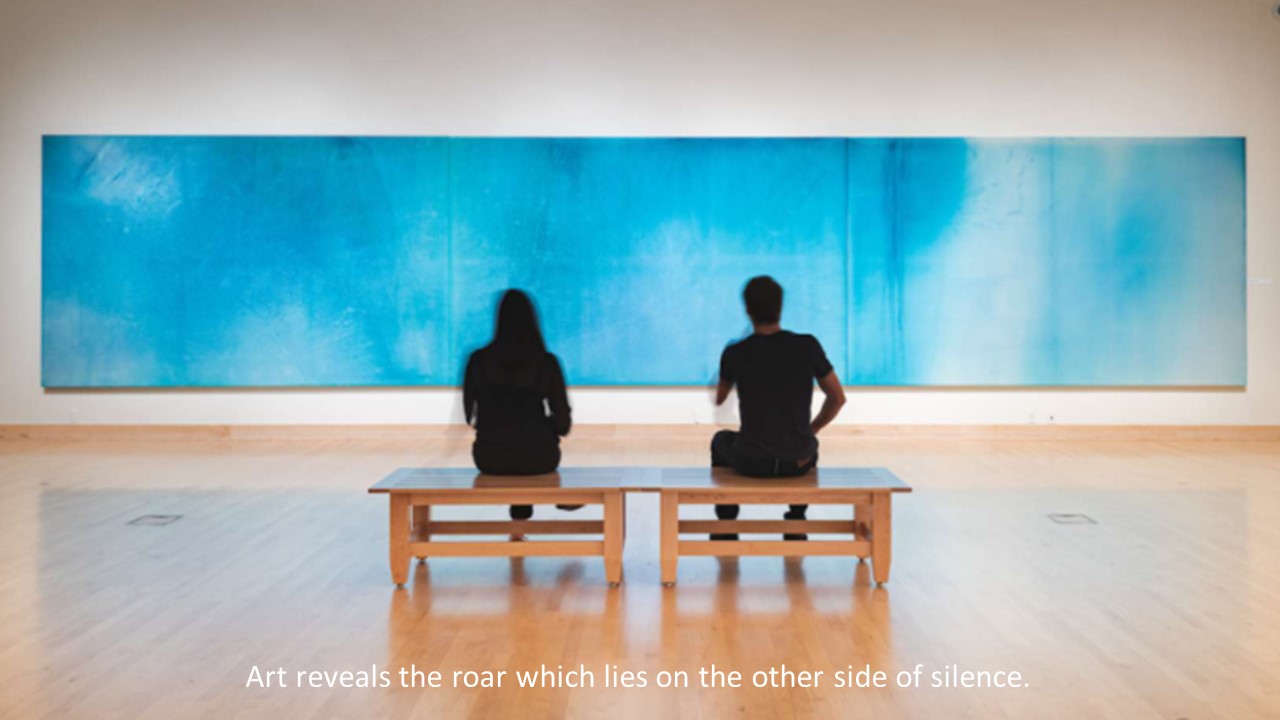Monday 30th August, 2021
Makoto Fujimura, Art and Faith: A Theology of Making ( Yale University Press, 2020), 107.
Image: photo of Makoto Fujimura's Silence and Beauty (2017)
This quote is from Makoto Fujimura, Art and Faith: A Theology of Making (Yale University Press, 2020, 107. It is the second in a series of three linked quotes and images for late August and early September. Fujimura's quote today is a direct reference to last week's quote from George Elliot's (pen-name of Mary Ann Evans) Middlemarch and this week's attached image is a photograph of a painting by Fujimura, who is a renowned contemporary artist as well as a writer about art and theology. Next week's quotation is quoted by Fujimura in the book from which his quote, today, is taken. I hope that's not all too confusing!
Fujimura's art is, as you will see from the attached, often quite large in scale and often abstract. For more about the 'Silence' series from which the painting in today's image is taken, see here. From this page you can navigate easily to other information about this writer/artist and his other paintings. You will see that the painting in today's image relates to Silence and Beauty: Hidden Faith Born of Suffering (Inter Varsity Press, 2016) which Fujimura wrote ahead of the release of Martin Scorsese's film Silence (for a film trailer, see here). The film is based on foremost Japanese novelist, Shusako Endo's book, Silence (Monumenta Nipponica, 1969), a moving and quite disturbing book about a portuguese Catholic priest sent to Japan as a missionary in the 1640s and the treatment of those in that country who converted to Christianity in this period. You can read an intro to this book and the whole text here but it is readily available on all the usual book sites. The novel addresses ideas of silence in a whole variety of forms, both noun and verb but much of it is not an easy or pleasant read and I deliberately chose not to watch Scorsese's film! However, it has been heralded as 'One of the finest historical novels written by anyone, anywhere' (David Mitchell, literary critic).
